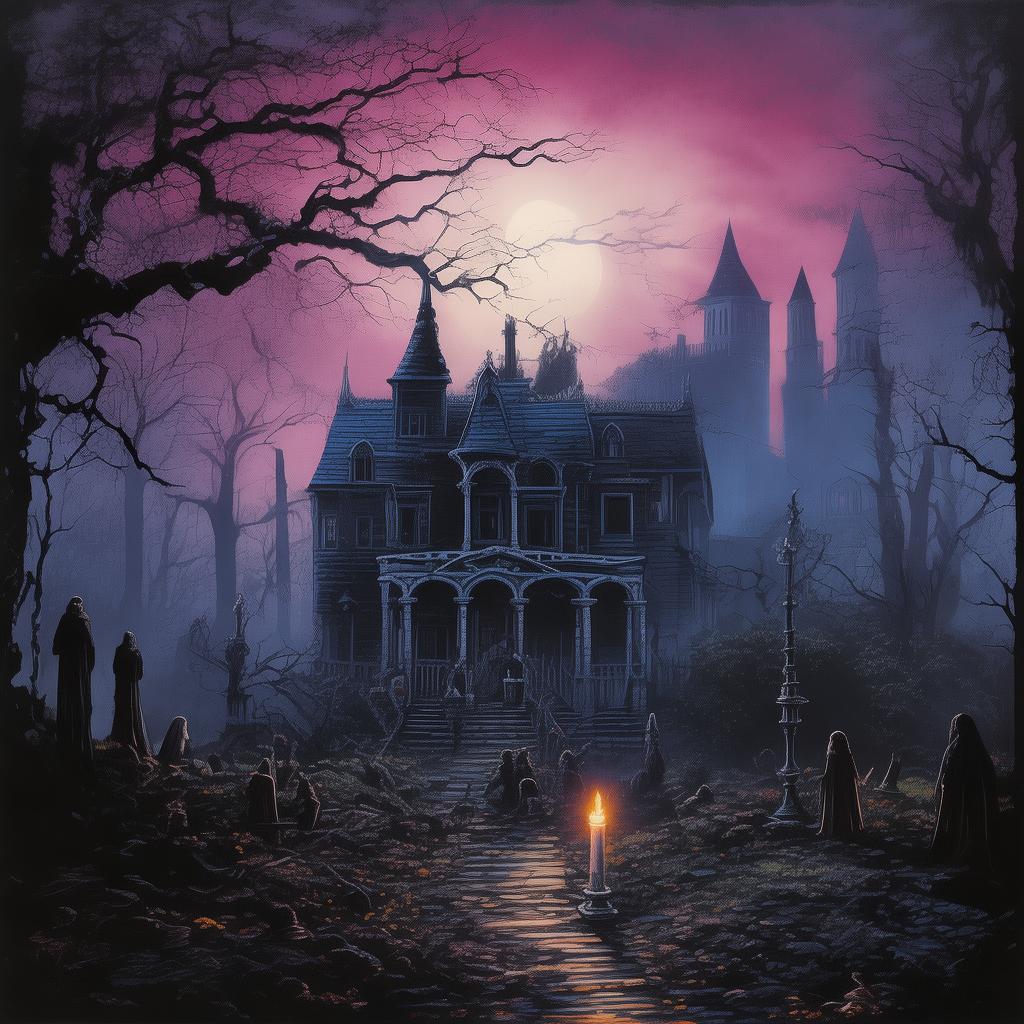The Haunting Melody of Zhang Zhen
In the heart of the ancient town of Lingxian, where the fog often clung to the cobblestone streets like a veiled secret, there was a legend that had long been whispered among the townsfolk. It was a melody that could be heard on the coldest of nights, a hauntingly beautiful tune that seemed to come from nowhere and nowhere at all. The townspeople spoke of it in hushed tones, some attributing it to the spirits of the departed, others to the whims of the wind.
It was during the Qing Dynasty when Zhang Zhen, a young and promising poet, arrived in Lingxian. He was a man of great talent, whose verses were as lyrical as the mountains that surrounded the town. His heart, however, was burdened by the memory of a love lost. His beloved, Li, had died in a tragic accident, leaving Zhang to grapple with the grief that consumed him.
Zhang found solace in his poetry, his words a reflection of the love he had lost and the sorrow he felt. He wrote of Li with a passion that only a broken heart can produce, his verses a testament to the depth of their love. It was said that his poetry had the power to heal, to soothe the pain of those who read it.
One evening, as Zhang wandered the streets of Lingxian, the melody that had become a part of the town's folklore filled the air. It was a melody that seemed to understand Zhang's pain, to resonate with the heartache that consumed him. He stopped in his tracks, the tune weaving through his mind like a spell.

The following days, the melody became more frequent, and with it, strange occurrences began to plague the town. People would hear the melody at odd hours, in places where it shouldn't exist. Some claimed to see the ghostly figure of a woman, dressed in ancient attire, walking through the mist. She was always accompanied by the haunting melody, her eyes filled with sorrow.
The townspeople grew anxious, their fear compounded by the mysterious nature of the occurrences. They sought out Zhang, hoping that his talent might reveal the source of the melody. Zhang, though initially skeptical, decided to investigate. He believed that the melody was a manifestation of Li's spirit, trying to reach him one last time.
Zhang began his search by revisiting the places where the melody had been heard. He followed the path of the woman in the mist, her silhouette a haunting reminder of the past. He found an old, abandoned house at the edge of town, its windows boarded up, its doors ajar. It was there that Zhang discovered the melody's source—a dusty old piano, its keys covered in dust but still capable of producing the haunting tune.
Inside the house, Zhang found a series of poems, each one more poignant than the last, written by Zhang himself. It was clear that this was where he had written his poetry, where his heart had poured out its pain. But there was something else. Hidden beneath the piano was a locket, its surface etched with the image of Li. Zhang realized that the melody was a gift from Li, a way to reach out to him through the music that they had shared.
The townspeople, now understanding the true nature of the melody, felt a sense of relief. They realized that the haunting was not a curse but a reminder of the love that once existed between Zhang and Li. The melody became a symbol of their enduring bond, a testament to the power of love that transcends the boundaries of life and death.
As days turned into weeks, the melody of the haunting grew fainter, eventually disappearing altogether. Zhang Zhen, now at peace with his past, continued to write his poetry, his words filled with gratitude for the love that had once been his and the memory of Li that would forever be with him.
In the end, the haunting melody of Zhang Zhen served as a beautiful reminder that love, though often tragic, is eternal. It was a haunting that was not to be feared but to be cherished, a melody that would forever resonate with the hearts of those who heard it.
✨ Original Statement ✨
All articles published on this website (including but not limited to text, images, videos, and other content) are original or authorized for reposting and are protected by relevant laws. Without the explicit written permission of this website, no individual or organization may copy, modify, repost, or use the content for commercial purposes.
If you need to quote or cooperate, please contact this site for authorization. We reserve the right to pursue legal responsibility for any unauthorized use.
Hereby declared.









